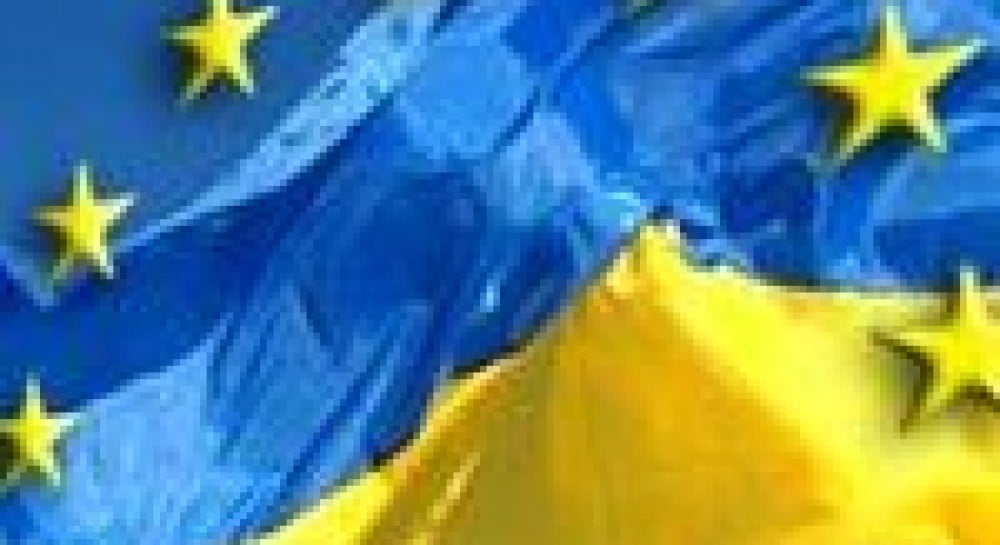
Time nears for Brussels to give some shape to Ukraine policy - FT
All the European Union`s happy neighbours are like each other, but each unhappy neighbour is unhappy in its own way - starting with Ukraine. What can the EU do to ensure that...
All the European Union`s happy neighbours are like each other, but each unhappy neighbour is unhappy in its own way - starting with Ukraine, according to FT. What can the EU do to ensure that, unlike Leo Tolstoy`s Anna Karenina , Ukraine`s story will have a positive ending?
Of all the former Soviet Union countries, none bar Russia matters as much to the EU as Ukraine - and none tries the EU`s patience as much.
For one thing, Ukraine is the conduit for 80 per cent of the EU`s natural gas imports from Russia. As the Union learned to its cost in January, when a Moscow-Kiev dispute cut off gas supplies for two weeks, events in Ukraine can cause havoc in member states that depend entirely on Russian gas. Some experts fear another gas crisis next January.
But gas is far from the whole story. With 46m people, a 1,400km border with four EU nations and frequent tensions with Russia that have nothing to do with gas, Ukraine is pivotal to the security of the EU`s eastern flank.
After Ukraine`s 2004 Orange Revolution some EU strategists hoped that the path to liberal democracy, the rule of law and economic prosperity would become irreversible in Ukraine. But it has not turned out that way.
The Russian-Georgian war of August 2008 shocked the EU into realising that the Kremlin was prepared to use force if necessary to halt the expansion of western influence into former Soviet republics. With its southern peninsula of Crimea home to a restive ethnic Russian population egged on by Moscow, the implications for Ukraine`s territorial integrity and independence were worrisome indeed.
Then the global financial crisis laid low Ukraine`s economy, which at present survives on a $16.4bn (?11bn, £10bn) loan from the International Monetary Fund. The crisis sharpened the rivalries that paralyse its politics and give an impression of endemic instability.
Worst of all, the Orange Revolution failed to clean up the corruption that runs deep in Ukraine`s business world, especially the energy sector. Corruption is bound up with the personal animosities and shadowy connections with Russian interests that bedevil Ukraine`s political scene. The EU feels irritation and helplessness. Since the January crisis, Ukraine`s authorities have done little to improve transparency in the energy sector.
All these difficulties explain why many in the 27-nation bloc are unwilling to offer Ukraine even a vague promise that it may one day be invited to join the EU. But the EU increasingly senses that it cannot afford to let its relationship with Ukraine drift directionless for much longer.
Ukraine`s woes were the subject of a two-day conference staged in Brussels last week by Wilton Park, the UK event organisers. Several speakers predicted that the key moment in EU-Ukrainian relations would be its January 17 presidential election. Anything less than a free and fair election, and a mature acceptance of the result by winners and losers alike, would be catastrophic for Ukraine`s image in EU eyes.
Ukraine is hoping to complete a so-called EU association agreement and a comprehensive free trade accord by the end of 2010. It may also be able to secure visa-free travel arrangements with the EU in advance of the Euro 2012 soccer tournament that Ukraine is to co-host with Poland. If these three agreements can be concluded over the next 12 months they will do more to "normalise" Ukraine than any steps since independence in 1991.
But an unsatisfactory election process in January could turn EU governments against Kiev, weakening support for the association and free trade accords. Even now, France and Germany are delaying Ukraine`s accession to the EU`s energy community treaty, which aims to create an integrated energy market in Europe and guarantee security of supply.
Moreover, Poland - which used to defend Ukraine inside the EU - is fed up with its poor progress in preparing for Euro 2012. Slovakia has been irritated with Kiev ever since its citizens suffered a mid-winter freeze because of January`s gas cut-off.
Ukraine has friends in the EU, but the balance is finely positioned. It will take an effort from Ukraine`s political leaders as well as the EU to make sure the scales do not tip the wrong way.

